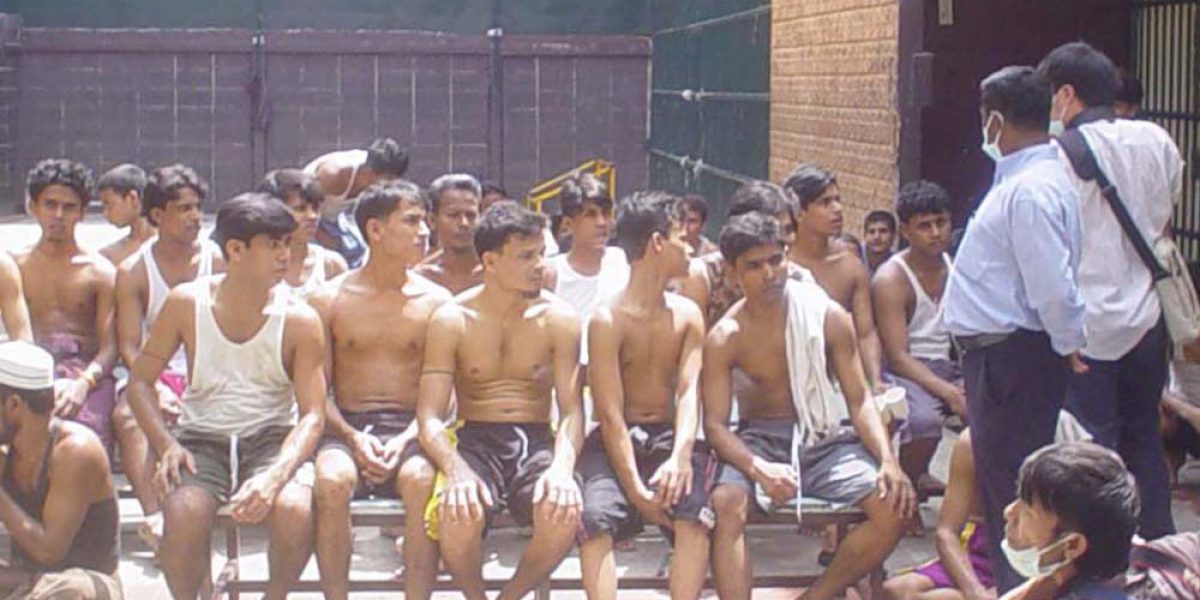Asia Pacific: NGOs urge governments to protect stateless people
03 September 2012

Bangkok, 3 September 2012 — Jesuit Refugee Service and other humanitarian organisations are deeply concerned about Asia Pacific’s stateless populations. Roughly 12 million people globally are deprived of rights to citizenship, access to education, health, and employment through statelessness.
On the first of September this month, JRS, in collaboration with civil society groups working in more than two dozen countries worldwide, signed a statement calling on governments attending the High-Level Rule of Law meeting during the General Assembly on September 24, 2012, to sign and ratify the two human rights conventions on statelessness:
When individuals or groups are made stateless and denied full equality before the law as a result of discrimination or arbitrary decision making, the rule of law is undermined. We, the undersigned civil society organizations, call on all Member States to commit to ending statelessness at the High-Level Rule of Law meeting during the General Assembly on September 24, 2012.
Specifically, we urge Member States to use this occasion to accede to or pledge to accede to the 1954 Convention Relating to the Status of Stateless Persons and the 1961 Convention on the Reduction of Statelessness, to introduce procedures to identify and protect stateless persons subject to their jurisdiction and to amend nationality laws that discriminate against women, children and specific populations based on ethnicity, religion, or other impermissible factors.
While every person has a right to nationality, at present upwards of 12 million people are not recognized as citizens of any country in the world. Without the protection of a government, they are stigmatized and often live in extreme poverty without access to education, health care or legal processes that protect them from abuse and exploitation. Many stateless individuals live on the margins of society, and this invisibility is the direct consequence of their constant fear of systematic discrimination, detention, exclusion or deportation. Throughout the world, hundreds of thousands of others are at a heightened risk of statelessness because they do not possess proof of birth in the country in which they live.
In December 2011, the United Nations Refugee Agency (UNHCR) organized a ministerial meeting in Geneva to commemorate the anniversaries of the statelessness and refugee conventions. Member States were encouraged to accede to the statelessness conventions, amend their domestic nationality laws to include safeguards against statelessness or to pledge to take other forms of action to prevent and reduce statelessness and to protect stateless persons.
The meeting revealed a new and growing global commitment to end statelessness, with 61 countries making statelessness-related pledges and 33 pledging to accede or take steps to accede to the statelessness conventions. Follow through on the pledges, however, remains an outstanding task for many Member States. Those States should make a concerted effort to fulfill the pledges before the upcoming Rule of Law Meeting, or be prepared to discuss obstacles to doing so during the meeting.
Subsequently, on July 5, 2012, two resolutions on statelessness were passed by the Human Rights Council, one of which focused on ensuring that all women and girls have the right to maintain, acquire and confer nationality on their spouses and children, equal to the rights of men. In at least 30 countries, women do not possess these rights so when they marry a foreign or stateless man they may lose their nationality or be unable to confer nationality on their spouse and children, which can result in statelessness.
Ending gender discrimination in nationality laws is a critical step to ending the perpetuation of statelessness in families. Member States should commit to amending domestic nationality, family and related laws that discriminate against women and children, and lift reservations placed on Article 9 of the Convention on the Elimination of Discrimination Against Women that undermine a woman’s full enjoyment of the right to nationality. ThoseStates with non-discriminatory nationality laws should pledge to provide legal and technical support to States pursuing positive changes in law.
Provision of access to effective and widespread birth registration is one of the most effective ways to combat the risk of statelessness. All parents, regardless of geographic location or socioeconomic status, should be made aware of and have access to birth registration for their children. Consistent with Article 7 of the Convention on the Rights of the Child, Member States should commit to free and accessible birth registration and States with functioning systems should pledge to provide technical and financial resources to those States requiring assistance in creating widespread birth and civil registration systems.
There is no legal, political, economic or social justification for the arbitrary denial of nationality to individuals. We hope that Member States will take the opportunity to recognize and support the enjoyment of the right to nationality by all stateless children, women and men throughout the world at the High-Level Rule of Law Meeting.



